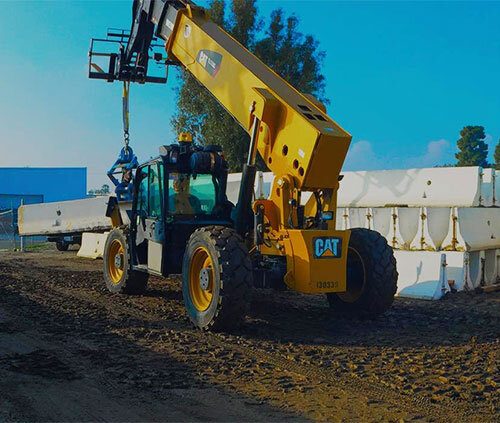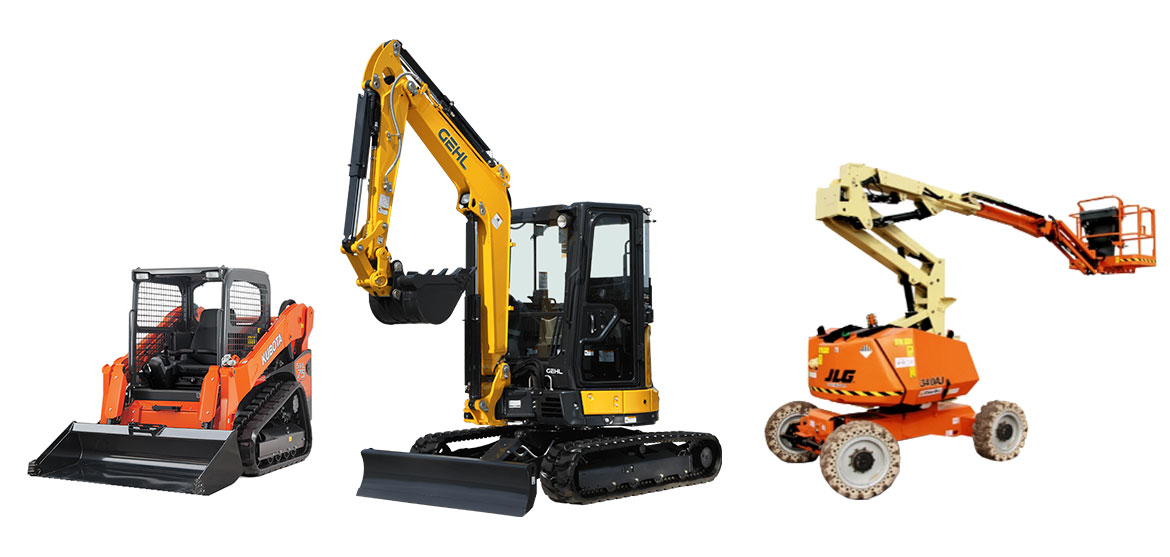Dozer Rental: Powerful Earthmoving Equipment for Your Construction Demands
Wiki Article
Maximize Your Budget Plan by Recognizing the Costs Related To Building And Construction Equipment Leasings
Comprehending the full range of prices associated with building and construction equipment leasings is essential for maximizing your spending plan. What methods can be utilized to efficiently take care of these expenses and make certain an extra efficient rental experience?Review of Rental Costs
When thinking about building tools leasings, recognizing the linked costs is paramount for reliable budgeting and project preparation. Rental expenses can vary significantly based upon numerous factors, including devices type, duration of service, and location. The first rental cost frequently reflects the devices's market demand and its associated functional abilities, influencing the general cost.In enhancement to the base rental price, ancillary costs might emerge, such as transport costs, fuel additional charges, and maintenance charges. It is vital to represent these additional expenses to properly assess the complete cost of leasing devices. The rental duration can impact rates; longer leasings may certify for reduced prices, while temporary rentals might incur greater daily costs.

Break Down of Rental Prices
A detailed understanding of rental prices is vital for specialists and task supervisors aiming to maximize their budget plans. Rental rates for construction equipment typically contain a number of parts, including base rates, time-based costs, and usage fees.Base prices are the core costs connected with the service of the equipment, frequently figured out by the kind and size of the machinery. These prices can differ dramatically, affected by aspects such as devices demand, availability, and local market trends. Time-based fees, which might be daily, weekly, or monthly, offer to suit different project timelines and rental durations.
Additionally, rental rates might include use costs, which are suitable when equipment is utilized beyond a defined threshold, making certain that the rental company can represent deterioration. Seasonal demand changes can additionally affect rental rates, with peak building seasons typically commanding greater rates.
In addition, recognizing the rental company's plans pertaining to upkeep and insurance coverage can offer additional insight right into the general cost framework. By examining these parts, specialists can make informed decisions, making certain the selection of rental equipment aligns with both job demands and budget plan restraints.
Additional Costs to Consider
Understanding the details of extra fees is important for service providers to handle their general service expenditures efficiently. Beyond the typical rental rates, different supplemental fees can dramatically impact the overall cost of equipment service. These charges often consist of delivery and pick-up costs, which can differ based upon distance and logistics associated with carrying the equipment to and from the heavy lifting equipment hire work site.Additionally, some rental companies might impose fuel additional charges if the tools is returned with less fuel than when rented out. It is also vital to understand prospective cleaning fees, especially for specialized tools that calls for complete maintenance after usage.

Completely assessing the rental agreement and clarifying these additional charges upfront can aid contractors stay clear of unforeseen prices and guarantee that budget plans stay intact throughout the task lifecycle.
Repair And Maintenance Expenses
Routine upkeep and repair service costs are usually neglected elements that can substantially affect the general expense of building and construction tools leasings. When renting out equipment, it is vital to take into consideration not only the rental charges however likewise the potential prices associated with maintaining the machinery in optimal operating condition.Many rental companies include standard maintenance as component of the rental agreement; nonetheless, more unexpected breakdowns or considerable fixings can cause added costs. It's vital to evaluate the rental agreement meticulously this link to recognize what maintenance services are covered and what obligations drop on the renter.
Moreover, equipment that is not properly maintained can result in inadequacies on the task website, potentially triggering delays and enhancing task prices. To reduce these dangers, it is recommended to carry out regular evaluations and keep open interaction with the rental supplier relating to any problems that develop throughout use.
Insurance and Liability Prices
Insurance policy and responsibility prices are critical elements that can dramatically influence the general cost of construction equipment leasings (heavy equipment rental). These prices guarantee that both the rental business and the customer are safeguarded from prospective monetary losses occurring from accidents, damage, or burglary during the rental duration
Additionally, customers should recognize any kind of deductibles or exemptions in the insurance plan, as these can influence prospective out-of-pocket costs. Recognizing the conditions of any type of insurance coverage is crucial to stay clear of unforeseen costs. Ultimately, budgeting for insurance coverage and responsibility expenses can assist guarantee a smoother rental experience and safeguard versus economic risks associated with building projects.
Final Thought
In verdict, a thorough understanding of the costs connected with building equipment rentals is important for efficient budget plan monitoring. Eventually, educated decision-making regarding tools leasings adds to the overall success of building and construction endeavors.Rental prices can differ substantially based on numerous factors, consisting of equipment kind, period of rental, and location site here (equipment rental company). The rental period can impact pricing; longer services might qualify for reduced prices, while short-term leasings might sustain higher day-to-day charges
By performing extensive study and engaging with respectable rental companies, professionals can successfully browse the intricacies of rental pricing, eventually maximizing their economic resources.
Beyond the conventional rental rates, numerous supplementary costs can dramatically influence the complete cost of equipment service. Rental firms frequently give obligation insurance policy that covers injuries to third celebrations or damage to residential property, while tools damages insurance policy can cover the price of repairs or substitute if the leased tools is damaged.
Report this wiki page